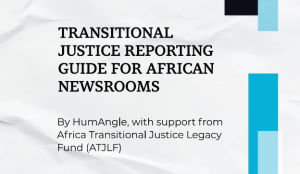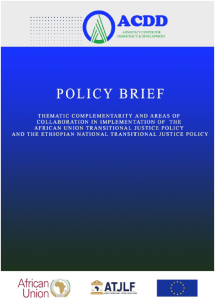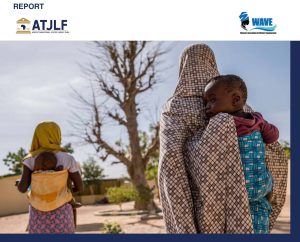The history of Africa is characterized by different political upheavals, struggles for liberation and socio-economic transformations. These political struggles and transformations include, for instance, the fight against colonialism and apartheid; the war against military authoritarian regimes; and the struggle for, and entrenchment of, democratic and participatory governance, human rights, constitutionalism and the rule of law. These experiences undoubtedly have brought with them different transitional justice (TJ) initiatives, like national dialogues, national truth and reconciliation commissions and national reparations funds, amongst others. The concept of TJ is therefore a necessary step in moving from a divided and painful past to a commonly shared and developed future.
The concept and the practice of TJ are by no means new to Africa. It was on this basis that the African Union (AU) Panel of the Wise, one of the AU Peace and Security Council pillars, embarked on research and came up with a report titled “Non-Impunity, Truth, Peace, Justice, and Reconciliation in Africa: Opportunities and Constraints”. The report was adopted by the Panel of the Wise at its tenth meeting in May 2011 in Addis Ababa, Ethiopia.
The findings indicate that Africa has varied experiences in TJ but there is no one, comprehensive policy framework to guide and promote experience sharing among Member States. Based on this, the report proposed developing a policy on TJ for adoption by the relevant AU organs. It also recommended an advocacy role for the Panel of the Wise in order to effectively promote and reinforce guiding principles on the rule of law and TJ across the continent.
Upon approval of the Panel of the Wise report and its recommendations, the AU policy-making organs mandated the AU Commission (AUC), through the Department of Political Affairs, to work with all stakeholders, particularly AU Member States and members of the Human Rights and Transitional Justice cluster of the African Governance Architecture (AGA), to develop the TJ policy. This policy is therefore a dream come true as a guide to AU Member States in need of TJ interventions.
On this note, I thank all AU Member States, particularly the AU Specialised Technical Committee on Justice and Legal Affairs’ Taskforce on Transitional Justice, for taking the leadership role in finalizing this important document. Deep commendation is also due to the sterling leadership of the Human Rights and Transitional Justice Unit of the AUC’s Department of Political Affairs, under the leadership of the Director of Political Affairs. The AGA’s Human Rights and Transitional Justice cluster, the legal drafters and consultants and others too numerous to reference here also deserve appreciation. Additionally, the AU appreciates the role of various civil society organizations in the development of this policy.
In conclusion, although a lot has been done to develop and adopt this policy, it is worth emphasizing that an adopted policy is merely a piece of paper if the provisions and guidelines are not domesticated and implemented as expected. I therefore recommend this policy to all relevant AU Member States and wish them success in its effective implementation.
